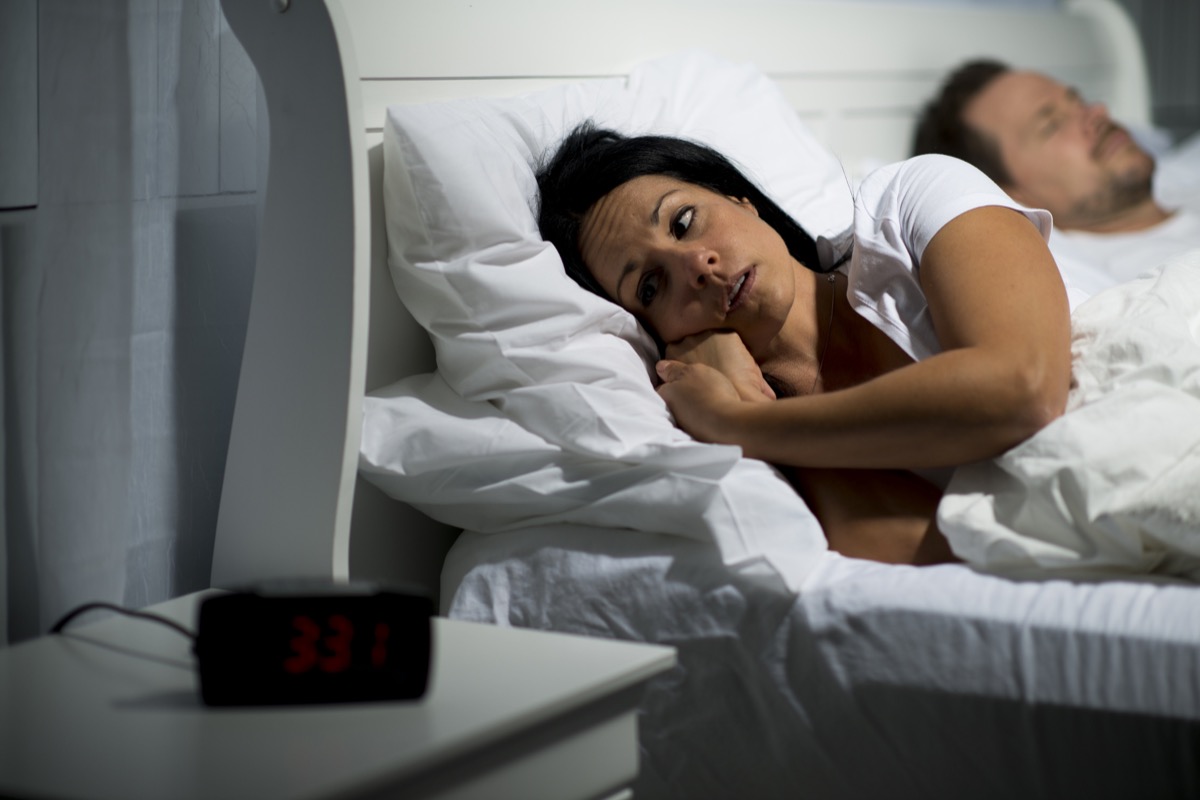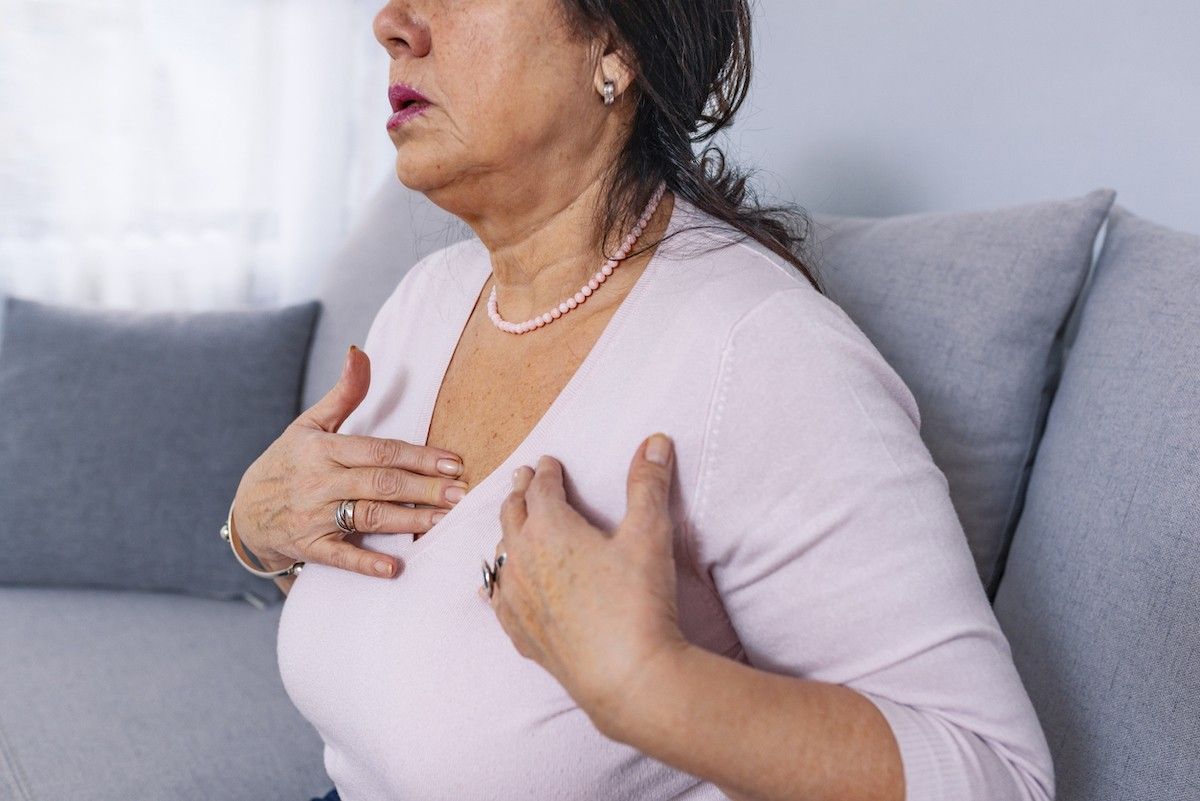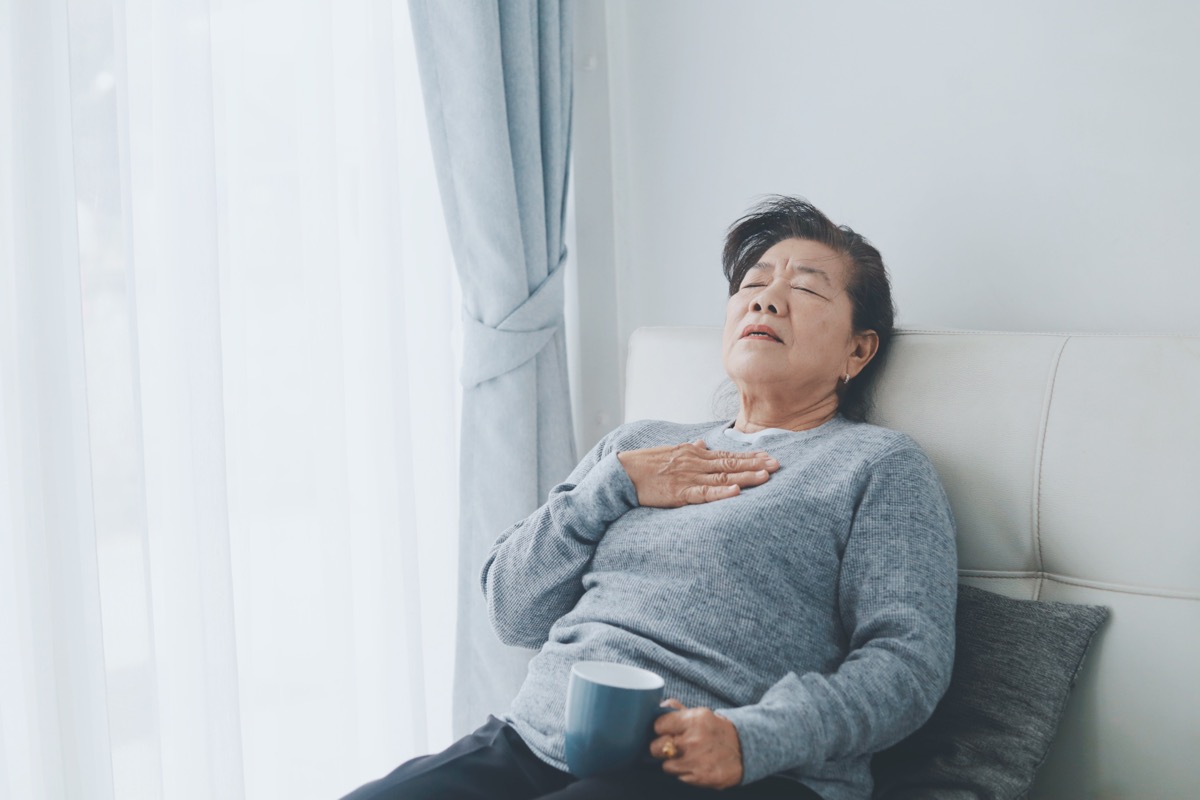RELATED: If You Notice This at Night, Your Heart Disease Risk Is Doubled. In 2003, the AHA conducted a survey of more than 500 women who survived heart attacks, the results of which were published in the journal Circulation. Among the 95 percent of participants who said they noticed something wasn’t right in the month or so before their heart attacks, the most common was unexplained fatigue. According to the research, 71 percent of women reported feeling tired for no logical reason in the weeks before their heart attack. In an article for the Cleveland Clinic, cardiologist Leslie Cho, MD, explains that if your fatigue is new or dramatic, you should consider the possibility of a heart attack. According to Cho, if you are exhausted after your typical workout, if you feel tired while resting, or if something as simple as making the bed wipes you out, you should talk to your doctor. It’s not just unexplained fatigue that could signal a heart attack. If you can’t sleep, that’s another cause for concern. According to the AHA survey, almost half—48 percent—of women who survived a heart attack said they experienced sleep disturbance up to a month before the event. That’s why Cho said if you feel exceptionally tired, but you also experience sleep disturbance, that could be an early indicator of a heart attack. RELATED: Women With These Symptoms Are 70 Percent More Likely to Have Heart Disease. The survey also found that only 31 percent of women experienced what’s considered the tell-tale heart attack symptom: pain centered high in chest. On top of that, 43 percent reported no chest pain during their heart attacks at all. “Lack of significant chest pain may be a major reason why women have more unrecognized heart attacks than men or are mistakenly diagnosed and discharged from emergency departments,” researcher Jean C. McSweeney, PhD, RN, a professor at the University of Arkansas for Medical Sciences, said in a statement at the time. “Many clinicians still consider chest pain as the primary symptom of a heart attack.” RELATED: For more up-to-date information, sign up for our daily newsletter. While unexplained fatigue is the most common early sign of a heart attack, according to the AHA research, women are more likely to report experiencing shortness of breath than any other symptom once their heart attack begins. Fifty-eight percent of respondents experienced the symptom during their heart attack, while 42 felt it in the weeks leading up to the cardiac event.ae0fcc31ae342fd3a1346ebb1f342fcb That’s why the AHA says that if you’re experiencing shortness of breath, with or without chest pain, you should call 911 and head to a hospital ASAP. Nieca Goldberg, MD, medical director for the Joan H. Tisch Center for Women’s Health at NYU’s Langone Medical Center, told the AHA that women tend to chalk up their heart attack symptoms to less life-threatening conditions like acid reflux or the flu. “There are still many women who are shocked that they could be having a heart attack,” Goldberg said. RELATED: 13 Signs of a Heart Attack Women Can’t Afford to Miss.



